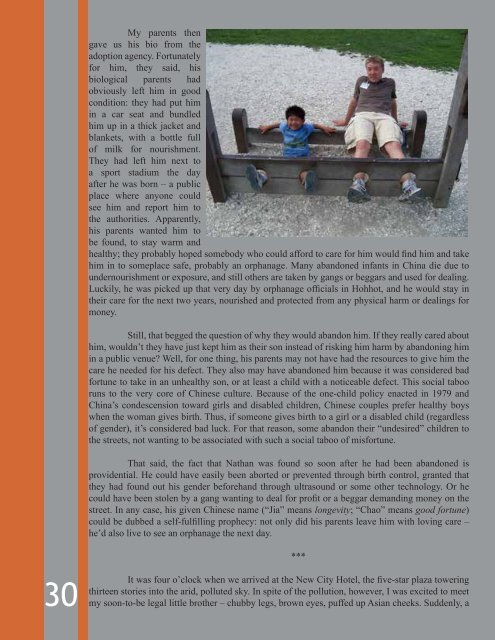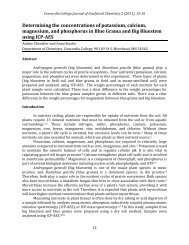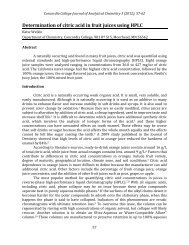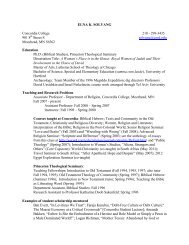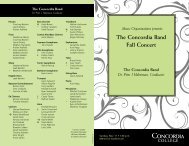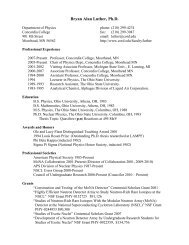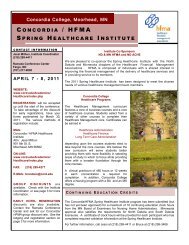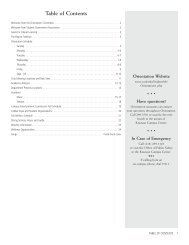Djembe - Concordia College
Djembe - Concordia College
Djembe - Concordia College
Create successful ePaper yourself
Turn your PDF publications into a flip-book with our unique Google optimized e-Paper software.
30<br />
My parents then<br />
gave us his bio from the<br />
adoption agency. Fortunately<br />
for him, they said, his<br />
biological parents had<br />
obviously left him in good<br />
condition: they had put him<br />
in a car seat and bundled<br />
him up in a thick jacket and<br />
blankets, with a bottle full<br />
of milk for nourishment.<br />
They had left him next to<br />
a sport stadium the day<br />
after he was born – a public<br />
place where anyone could<br />
see him and report him to<br />
the authorities. Apparently,<br />
his parents wanted him to<br />
be found, to stay warm and<br />
healthy; they probably hoped somebody who could afford to care for him would find him and take<br />
him in to someplace safe, probably an orphanage. Many abandoned infants in China die due to<br />
undernourishment or exposure, and still others are taken by gangs or beggars and used for dealing.<br />
Luckily, he was picked up that very day by orphanage officials in Hohhot, and he would stay in<br />
their care for the next two years, nourished and protected from any physical harm or dealings for<br />
money.<br />
Still, that begged the question of why they would abandon him. If they really cared about<br />
him, wouldn’t they have just kept him as their son instead of risking him harm by abandoning him<br />
in a public venue? Well, for one thing, his parents may not have had the resources to give him the<br />
care he needed for his defect. They also may have abandoned him because it was considered bad<br />
fortune to take in an unhealthy son, or at least a child with a noticeable defect. This social taboo<br />
runs to the very core of Chinese culture. Because of the one-child policy enacted in 1979 and<br />
China’s condescension toward girls and disabled children, Chinese couples prefer healthy boys<br />
when the woman gives birth. Thus, if someone gives birth to a girl or a disabled child (regardless<br />
of gender), it’s considered bad luck. For that reason, some abandon their “undesired” children to<br />
the streets, not wanting to be associated with such a social taboo of misfortune.<br />
That said, the fact that Nathan was found so soon after he had been abandoned is<br />
providential. He could have easily been aborted or prevented through birth control, granted that<br />
they had found out his gender beforehand through ultrasound or some other technology. Or he<br />
could have been stolen by a gang wanting to deal for profit or a beggar demanding money on the<br />
street. In any case, his given Chinese name (“Jia” means longevity; “Chao” means good fortune)<br />
could be dubbed a self-fulfilling prophecy: not only did his parents leave him with loving care –<br />
he’d also live to see an orphanage the next day.<br />
It was four o’clock when we arrived at the New City Hotel, the five-star plaza towering<br />
thirteen stories into the arid, polluted sky. In spite of the pollution, however, I was excited to meet<br />
my soon-to-be legal little brother – chubby legs, brown eyes, puffed up Asian cheeks. Suddenly, a<br />
***


